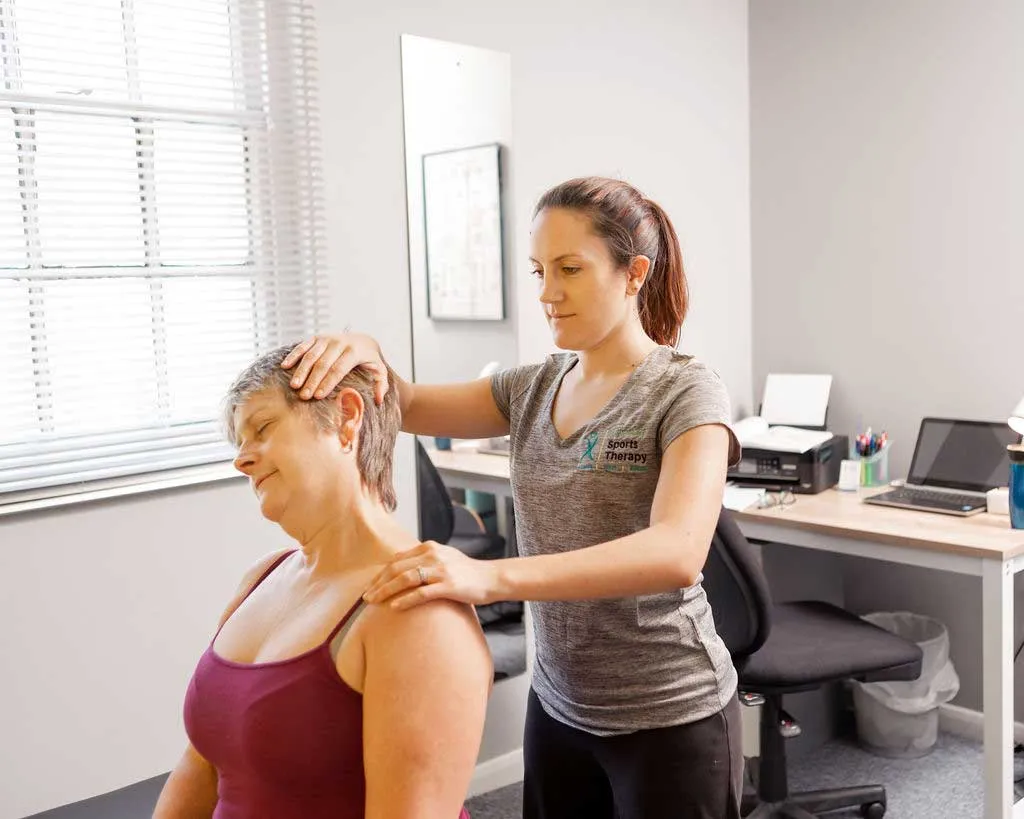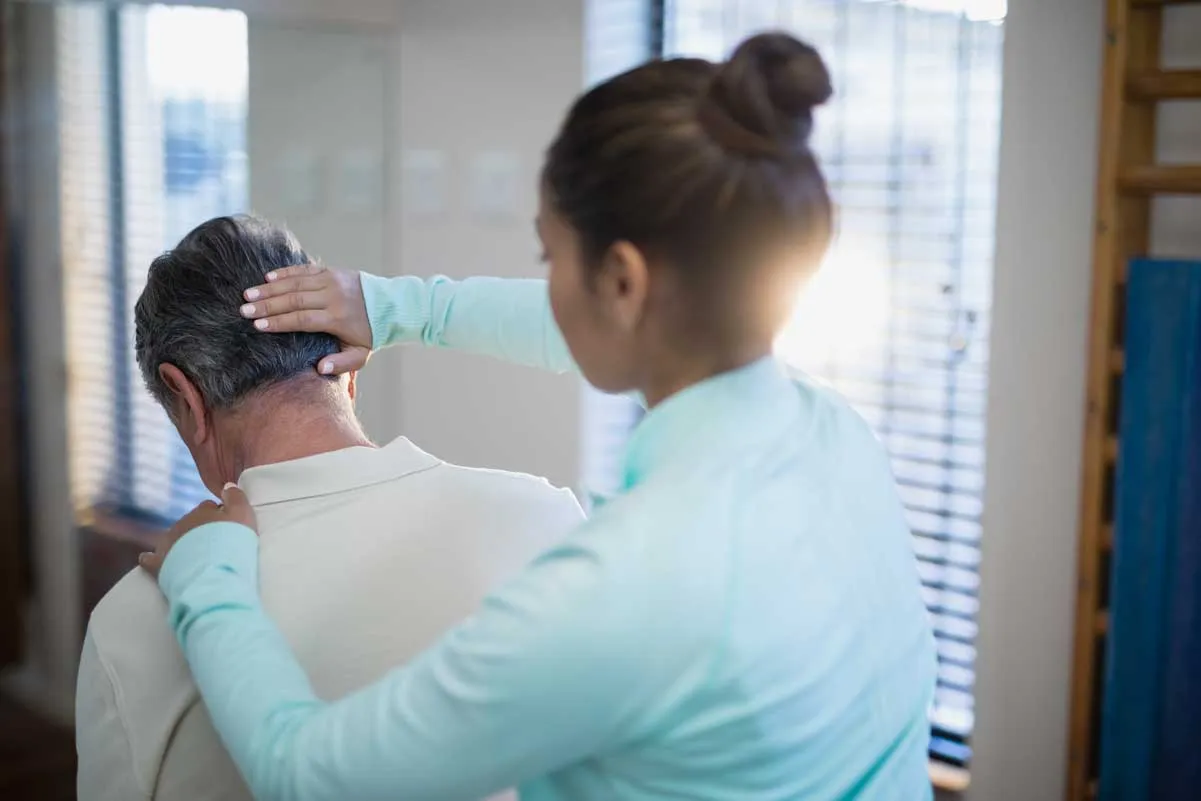- Previously Clwydian Sports Therapy & Injury Clinic
- 01352 746 500
- clinic@peacockinjuryclinic.co.uk

Dizziness and vertigo can be a frightening and disruptive experience. It often leaves individuals feeling off-balance, lightheaded, or like the world is spinning.
Dizziness and vertigo are broad terms that describes various sensations, including feeling faint, woozy, or unsteady. Often, it is related to problems within the vestibular system—located in the inner ear—which helps regulate balance and spatial orientation. When this system is compromised, vestibular disorders arise, affecting your ability to remain steady on your feet or keep your vision clear.
Vestibular conditions can range from temporary discomfort to chronic, disabling disorders. Addressing the underlying cause is crucial to restoring balance and preventing dizziness from interrupting your day-to-day life.
There are several types of dizziness, and vestibular conditions can manifest differently for each person. Here are some of the most common:


Vestibular conditions can arise from various issues, primarily related to the inner ear or nervous system. Some of the most common causes include:
The symptoms of vestibular disorders can vary depending on the condition but often include:
These symptoms can range from mild and temporary to severe and chronic, significantly impacting your ability to perform daily activities.


Treatment for dizziness and vestibular conditions focuses on addressing the root cause of the problem. At Peacock Pain & Injury Clinic, we offer personalized treatment plans, including:
Here are two of the most common vestibular conditions we treat:
